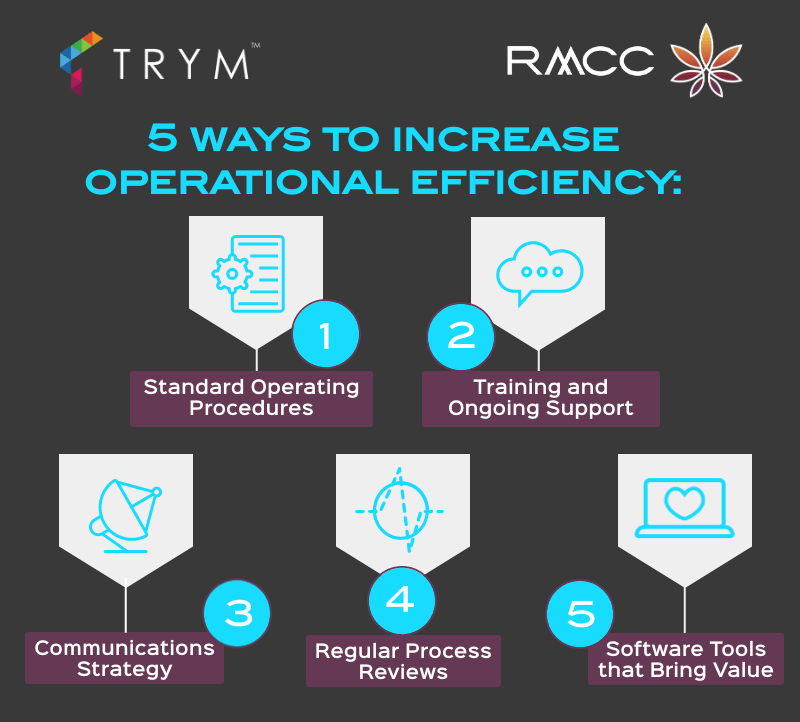Member Blog: How Technology Can Ensure An Equitable Cannabis Industry

by Walter Moore, Cognitive Harmony Technologies CEO
The multi-billion dollar cannabis industry is coming to a town near you. With new states passing adult-use legislation every day, it’s only a matter of time before businesses begin opening their doors nationwide.
In states such as New York, the first cannabis business licenses (CBLs) are being given to people who were impacted by the war on drugs and hemp farmers. The effort is a first-of-its-kind approach that is admirable in theory – a positive step toward righting the wrongs that have persistently and unfairly affected people of color – but still leave the door open for challenges in practice.
Simply put, the barrier for entry is too high for most individuals due to the complex and convoluted CBL application process. Between sifting through and submitting thousand-plus page documents and potentially spending hundreds of thousands of dollars to create a perfect, compliant application, new business owners are fighting an uphill battle against multi-state operators (MSOs) who have moved across the country as legalization opens state by state and have the process (and hundreds of thousands dollars needed to afford a dedicated application consulting firm) down to a science.
Legislators may have noble intentions in offering a head-start to people affected by the war on drugs in an effort to correct past wrongdoings and create a distribution of ownership that looks like the people most affected, but if the necessary regulatory framework of the application process is encumbered with more compliance to receive equity benefits, it will be even harder to complete a competitive application – leaving many potential new business owners without a license and the well-oiled machines known as MSOs first in line.
Not to mention the fact that the application process often plays out over years. States will frequently take half a year to review an application and only provide roughly 10 days to fix any deficiencies.
Technology is The Way
While the odds may seem stacked, the technology to close the gap exists and many CBL applicants are finding out how to compete against large MSOs and established players in the market. As someone who experienced everything that goes into the application process, and what is wrong with it, first-hand when I began my career in cannabis, I’ve realized that the only way to effectively compete is by working smarter. Through technology we can create greater access and a level playing field.
There are several key areas where technology (i.e. “working smarter”) is already paving the way for true social equity while applicants embark on submitting a cannabis business license. Document generation, telepresence, language processing, machine learning, artificial intelligence and augmented reality are among areas of interest that savvy CBL applicants can implement into their strategy. By normalizing standard operating procedures (SOPs) across verticals and jurisdictions, companies can provide contextual SOPs directly in front of a user with a simple QR code. Imagine a world where a dispensary employee can access SOPs directly from each piece of equipment or area of a facility with minimal effort simply by scanning a QR code with their tablet.
A Cannabis Industry for All
Laws that benefit a more equitable industry surely help, but in a new industry where the gap between the have and have-nots is already wide and growing rapidly, more steps need to be taken by regulators to eliminate the pay-to-play mistakes that have infested other state cannabis policies such as in my home state of Illinois. In Illinois, there wasn’t a fair cap on the number of CBL submissions for a company, leaving businesses with the most money with an opportunity to submit over 40 times and flood the application pool.
Thankfully, I’m pleased that regulators in New York and New Jersey are doing a better job in this regard, avoiding these unfair situations, but I foresee a highly political zoning situation in New York. Historically, companies that can afford to pay lobbyists and other influential people to get the deals and contracts done, are more successful. I’m not sure what short-term regulatory solution exists for this age-old, persistent issue.
It’s encouraging to see the cannabis legalization movements around the country paired with well-meaning equity and restorative justice initiatives. However, there is still a high barrier to entry presented by the extensive and convoluted cannabis business license application process. Only through advances in technology will this barrier be taken down.
 Walter Moore Cognitive Harmony Technologies CEO & CTO, is an accomplished software architect, financial engineer, and entrepreneur residing in the south suburbs of Illinois. He specializes in architecting elegant, compliant, and scalable solutions to complex regulatory environments in the AdTech, FinTech, Digital Assets, and Cannabis industries. He has a Masters of Science in Financial Engineering and undergraduate degrees in Theoretical Physics and Applied Mathematics.
Walter Moore Cognitive Harmony Technologies CEO & CTO, is an accomplished software architect, financial engineer, and entrepreneur residing in the south suburbs of Illinois. He specializes in architecting elegant, compliant, and scalable solutions to complex regulatory environments in the AdTech, FinTech, Digital Assets, and Cannabis industries. He has a Masters of Science in Financial Engineering and undergraduate degrees in Theoretical Physics and Applied Mathematics.
Walter started Cognitive Harmony Technologies in order to support social equity teams and bring change to an industry which has historically whitewashed the past injustices served in its former prohibition, something which he has experienced firsthand in prior decades. As a cannabis business license owner, Walter knows just how difficult it is to put together a competitive application. He developed the CHT platform in order to help lower the barrier of entry for others willing to put in the hard work of assembling an application, but who would otherwise be priced out of the competition.
About Cognitive Harmony Technologies
At Cognitive Harmony Technologies, our proprietary CHT Accelerator platform is paving the way for true social equity in the CBL application process by developing a meticulous roadmap to create a complete and competitive automated application much like tax preparation software generates tax returns, providing live-support, and offering access to a helpful network of architects, realtors and a range of connections. Additionally, we offer this for a fraction of the cost of what the hundred-thousand-dollar consulting firms that multi-state operators employ, and in some cases it is completely free. Cutting-edge technology is the best tool that an everyday, aspiring entrepreneur can leverage to break into the industry, and make the cannabis sector’s leadership as representative and diverse as the consumers.
Our mission is to open the doors for equitable cannabis business ownership by making the application process easy as filing personal income taxes online. The CHT Accelerator streamlines the entire application process into one easy-to-use software platform so you can create a complete and competitive application. Follow us on LinkedIn or visit our website.
Member Blog: 9 Standard Operating Procedures Every Dispensary Should Have

by Tommy Truong, Director of Partnerships at KayaPush
Standard Operating Procedures (SOPs) are the documents, protocols, systems, and procedures that your cannabis dispensary should have in place to manage day-to-day operations.
SOPs help dispensaries in many ways: From optimizing proper employee management systems such as dispensary payroll and onboarding to ensuring compliance with regulations are consistently met, and more.
What are the top dispensary SOPs to use?
There are hundreds of dispensary SOPs that could be created, and they should constantly be evolving as your store grows.
Overall the goal of dispensary SOPs is to increase efficiency and help you become more profitable in the long run. That being said, these are the 9 types of dispensary SOPs we recommend you start with as you build and scale your dispensary store.
1 – Opening & closing procedures and SOPs
All brick and mortar retail stores should have SOPs in place for opening and closing the store. But especially stores that require high-security measures like cannabis retail stores.
Opening and closing checklists for this special breed should include the following:
Opening checklist:
- Vibe check: Turn on lights, music, temperature, put out signs, clean.
- Check for any signs of a break-in or forced entry every morning.
- Make sure that all products in the display and stores are accounted for.
- Put away any orders.
- Review inventory.
- Turn on and start up all software systems.
- Ensure you are in dress code (if applicable)
End of day checklist:
- Check that the security cameras are working.
- Lock all the doors and display cabinets.
- Check and report any obvious security threats/ logbook.
- Generate sales and compliance reports.
- Cash-out protocols.
- Closing the cash registers and POS system.
- Turn off lights, music, bring in signs.
- Clean and sanitize the store.
- Lock all doors and perform security checks.
2 – Customer check-in procedures and SOPs
Many cannabis dispensaries violate their customer check-in procedures and end up facing fines and license suspensions by regulators. Due to this, it is crucial that you implement customer check-in SOPs to ensure compliance.
Customer check-in procedures include:
- Proper budtender training on protocols beforehand.
- Screen every customer entering the store to ensure they are of legal age.
- Ensure customers have a valid license to purchase cannabis.
- Scan the customer’s ID to make sure it is genuine and valid.
- Check the customer’s age, and enter these details into your customer database or tracking system.
- Check the system to ensure the customer has not already gone over their purchasing limit at a different store.
- Follow proper serving protocols.
3 – Sales transaction process and SOPs
Sales transaction processes are crucial to the business because this is how the company generates its revenues. Keeping track of these is key. Do you have the following sales SOPs?
Sales transaction processes could include:
- Greeter procedures (first customer contact),
- Boxing and packing procedures.
- Cashier procedures.
- Answering customer product questions.
- Recording product sales information into tracking systems.
- Recording shipping information.
- Processing various forms of payment.
- Gathering sales tax to submit.
It would help if you integrated your SOPs with the technology you’re using, like cannabis-compliant POS systems.
4 – Delivery procedures and SOPs
Cannabis deliveries can get complicated as they tend to include strict guidelines around logistics. This is why it’s essential there are SOPs built around these logistics.
Delivery procedures could include:
- Packaging and shipping guidelines with regards to the different types of products.
- Procedures in place to pack and mark fragile deliveries — like glass bongs — clearly to ensure safe delivery.
- Details and SOPs around third-party deliveries.
- Sop’s around management tools or software.
- Inputting data into the tracking software or POS system.
- Proper accounting and documentation of the aforementioned.
5 – Security, accounting, and cash management protocols and SOPs
Cannabis retail stores face many challenges when storing and moving cash from the store to the bank. Since dispensaries are not legal at the federal level in the United States of America, they are limited in the services they can receive from banks. As a result of those limitations, dispensaries struggle with large amounts of cash being stored on the dispensary’s premises, so tight SOPs surrounding how to navigate these challenges are crucial.
Security and cash management protocols could include:
- What employees are allowed in sensitive areas like stores and cash safes.
- How long to keep security camera recordings and how to report a robbery.
- How often armored trucks can pick up cash.
- Who gives the cash to the trucks.
- How the cash is stored while at the dispensary.
- Who is keeping track of accounting and line items?
- Who is keeping track of inventory management?
- How are taxes being filed and accounted for, and by who?
6 – Track-and-trace & inventory management and SOPs
Track and Trace SOPs are important for every cannabis dispensary. In order to comply with the regulations, you have to adopt track and trace SOPs into your inventory management system.
These track and trace SOPs should cover:
- Inventory management processes like procurement.
- Transportation to store.
- Product transfers.
- Audits.
- Track and trace software procedures that comply with local regulations.
Given how important track and trace SOPs are for compliance, you should automate this process if possible. Track-and-trace automation software can help you define the roles for each activity and integrate compliance checks.
7 – Quality assessment SOPs.
Quality assessment SOPs will make sure your product is up to the required standard by the regulators and that you are not violating any laws over what ingredients can be included in your products and how they are made. Failure to comply with these SOPs or pass a quality assessment could leave a dispensary owner at risk of losing their license.
Quality assessment SOPs could include:
- Purchasing products from verified sellers.
- Ensuring products are tagged within tracking systems.
- Ensuring you are selling products that you can legally sell within your geographic location.
- Product feedback requests.
8 – Product recalls and emergencies and SOPs
Product recall SOPs will come into play when a defective product needs to be recalled from the market. This can be stressful for the team as it will lead to customers complaining, and management concerned about losses being recorded. One of the most valuable assets to have in this situation would be SOPs that guide your team on how to act in this situation without losing their cool or professionalism.
Recall SOPs could be:
- How /who contacts purchasers.
- Who is on top of product updates (do you have a compliance manager?).
- Product recall script.
9 – Employee Management SOPs
Previously, these SOPs have been focused on inventory and store management, however, managing your staff is another large part of any dispensary operation.
When managing your staff it is recommended that you use employee management software to alleviate the stress of manually running operations such as dispensary payroll, scheduling, onboarding, or time clock adjustments.
Using software alone can eliminate the need for some of these SOPs but if you do choose to go the manual route you should have SOPs for the following procedures.
Employee management SOPs could be:
- How do you onboard employees?
- Who manages their forms and licenses?
- Who writes and manages the schedules?
- How do employees swap shifts?
- How do staff clock into shifts?
- How runs payroll?
- How are staff paid?
- How are taxes paid?
- How are employees’ performances reviewed, and by who?
Conclusion
These are the major SOPs that we believe you should have in place before opening or scaling, but don’t forget that enforcing them is just as crucial as implementing them!
The best way to run a compliant, systematic, and streamlined dispensary is to use great technology to help you succeed!
Consider using a project management tool to help you stay on top of all your tasks, a people management solution for payroll, HR, time tracking, and scheduling, and a dispensary POS solution that integrates with track and trace technology and people management solution for the best results. By using the tools paired with standard operating procedures your dispensary is sure to succeed.
 Author Tommy Truong is the Director of Partnerships at KayaPush; the cannabis software helping dispensary owners manage their employee HR, scheduling, and payroll. KayaPush also integrates with leading dispensary POS systems. Tommy loves hot sauce, fried chicken, and running with his Boston terriers.
Author Tommy Truong is the Director of Partnerships at KayaPush; the cannabis software helping dispensary owners manage their employee HR, scheduling, and payroll. KayaPush also integrates with leading dispensary POS systems. Tommy loves hot sauce, fried chicken, and running with his Boston terriers.
Member Blog: How to Avoid Compliance Issues with Your Cannabis Business

By Jo-Anne and LaKia, Greenspace Accounting
All businesses must adhere to tax rules and regulatory compliance, but for cannabis companies, the laws are significantly more challenging to navigate. The cannabis industry has specific tax rules that differ from other sectors, and failing to follow them can result in severe financial and legal implications.
At Green Space Accounting, we know that managing your finances as a cannabis company can be much more complicated than the average start-up. Keeping a compliant financial system in place is not always easy with constantly changing state laws and regulations.
Here are a few tips on how to avoid compliance issues with your budding cannabis business.
Have Your Business Documentation in Order
One of the first steps to staying compliant is to have all the appropriate financial information and licensing for your business on hand.
Always be prepared with copies of your cannabis license, information from your seed-to-sale tracking system, and your point of sale software records. Having this paperwork, along with legal documents like operating agreements, Articles of Incorporation or Organization, and EINs will ensure that you have a fully compliant relationship with your bank, as well as local and state government.
It’s also a good idea to have detailed records on all sales transactions within your business, especially ones dealing with cash. Cash is used more frequently in cannabis dispensaries than in other retail industries. Having proper cash-handling procedures in place can save you from theft and keep you ready for any unexpected auditing.
Stay up to Date with State and Local Regulations
It’s important to remember that regulations surrounding cannabis change over time, so monitoring your state legislature and all applicable state and local agencies is crucial to keeping your business compliant. By making yourself aware of the rules for the cultivation, manufacturing, and distribution of cannabis, you can avoid the risk of fines or legal action and build a better relationship with your local government, law enforcement, and, most importantly, customers.
One way to stay up to date with regulatory compliance laws is to consume state and industry news surrounding cannabis daily. Not only do these publications keep you informed on business and consumer trends, but they also avoid complicated legal jargon, speaking directly to business owners in a way that’s easy for them to understand.
Here are a few recommended industry news sources:
Another great way to stay on top of state and local cannabis laws is to network and build relationships with your local regulators. While maintaining compliance internally is the biggest goal, creating an ongoing relationship with the regulators in your area can help you better understand the changes within the industry and the steps you can make to conduct business more transparently.
Develop SOPs, Training, and Reporting Systems
Think of these SOPs as a set of rules that all employees need to abide by to keep your company’s production, sales, and accounting processes consistent and safe. Having a set of standard operating procedures can help you recognize potential compliance issues and fix them before they occur. These procedures can include an employee handbook on proper handling and storage of cannabis consumables to installing a seed-to-sale tracking system for inventory management purposes.
The best way to stay on top of your SOPs is to create reports, checkbooks, and logs in all aspects of your operations to show regulators that you are a transparent business that has a complete understanding of your state’s compliance laws. Frequent compliance training sessions are also an effective way to educate your entire team on the legal and tax regulations associated with your business.
Cannabis Payroll
To avoid issues concerning payroll, installing time tracking software for employees is also a great way to keep your staff organized and stay on top of the 280E tax code. The 280E law denies cannabis businesses federal income tax deduction for operating business expenses, which means that the wages for some employees may be deductible, and some may not be. By introducing software where employees can specify the tasks they’re doing and track the salaries they’re receiving, you’ll stay compliant with the tax code and better understand the productivity your team is generating.
Frequently Audit your Business
Hiring an outsourced accounting team to audit your cannabis business is a great way to avoid any potential risks regarding compliance. Auditors serve as an additional, unbiased set of eyes that will examine all areas of your organization and identity aspects that might need improvement.
If you are looking to stay on top of the legal and tax regulations for your cannabis business on a tight budget, self-auditing your company is a great way to check whether or not your training, bookkeeping, and SOPs are being appropriately implemented.
Entrepreneurs who belong to the National Cannabis Industry Association can receive discounted access to an acclaimed compliance management platform created by Simplifiya, which gives licensed operators a self-audit checklist that helps them identify, track, and mitigate potential issues before it’s too late. The platform also provides templates for creating SOPs customized for each license type and tied directly to your state regulations.
The Bottom Line
Whether you are a start-up, a growing business, or a multi-state operator, complying with federal and state compliance laws is essential. By following the above tips and staying transparent with your employees, partners, and investors, you’ll be ready for any audit that comes your way.

 Whether you’re looking for cash flow management, business planning, or internal controls, our team is dedicated to helping you achieve peace of mind when it comes to your company’s finances and compliance. We understand that the financial side of your business can be daunting, complicated, time-consuming, and most of all: stressful. You don’t need to go through it alone. Our team is prepared to help you achieve your financial goals. Whether you’re looking to earn more revenue, scale your business or achieve a little peace of mind, you can trust Green Space Accounting to guide you.
Whether you’re looking for cash flow management, business planning, or internal controls, our team is dedicated to helping you achieve peace of mind when it comes to your company’s finances and compliance. We understand that the financial side of your business can be daunting, complicated, time-consuming, and most of all: stressful. You don’t need to go through it alone. Our team is prepared to help you achieve your financial goals. Whether you’re looking to earn more revenue, scale your business or achieve a little peace of mind, you can trust Green Space Accounting to guide you.
Member Blog: Off The Backburner – Compliance During COVID-19

by Mark Slaugh, CEO and Co-Founder of iComply, LLC
Operational cannabis compliance has been a vital but often ignored part of many owners’ guides to success. With the hustle and bustle that is the ever-expanding nature of the cannabis business, most owners and operators want to believe they are compliant 100% of the time.
However, anyone who owns a cannabis business and is honest with themselves knows that to understand the constantly changing regulatory updates is a constant challenge. Often, the needs of the business outweigh the time it takes to assess the best ways to remain compliant. Too often, the distractions of growing the brand, networking, and conferences distract us from what’s happening with staff, procedures, and operations behind the scenes.
This has become alarmingly evident during COVID-19.
The pandemic began affecting how different operators in different States had to adjust various emergency procedures and restrictions on how cannabis could be bought and sold. From there, pandora’s compliance box released a torrent of issues to look at.
In our experience, 95% of the industry has a reactive approach to compliance management and will scramble to take time and pay expensive attorneys fees to dig them out of trouble once they are caught.
And what you resist, persists.
During COVID-19, owners are already making procedural adjustments to remain compliant and are staying at home for a change – which has allowed them and their teams more focus and less distraction by avoiding conferences, travel, and in-person meetings as much as possible.
What they are finding is that the compliance train has been off the tracks for a while.
Naturally, as the industry grows, so does the responsibility of mitigating liability and staying on top of the backburner projects in dealing with compliance. It is not the sexiest or most fun aspect of the industry (if you aren’t compliance nerds like us).
People tend to resist being honest about it, managing it appropriately, or holding others accountable until it’s too late.
COVID has at least provided some breathing room for owners and operators to put on their facemask and dust off their SOPs or untangle the strings around poor inventory management.
Some cannabis companies are asking themselves how they can use the boredom of COVID-19 (to some degree) and the extra time saved from travel, conferences, and meetings to re-examine their operational compliance infrastructure.
We are finding that owners in the cannabis industry are lacking a transparent cannabis compliance plan that can be easily adjusted to stay ahead of regulators, rules, and to mitigate product liability. They lack accurate employee training to specific procedures with accountability and wonder why turnover is so high. They are starting to realize that inventory, books and records, and daily compliance management are creating more risk than is tolerable for a tangible reward.
The word “decimation” comes from the Roman times and was considered a military punishment in which squads of 10 (deci) would draw stones from a bag. One black stone among the white ones meant beating that soldier to death by his fellows. While extreme, the lesson was an important one and is still relevant in the cannabis industry today.
Out of every inspection by the MED, in Colorado, around 10% of licensees were found in violation and administratively punished. Having come from a banking risk management background, it is shocking to see that level of risk be “ok” with most operators.
No other heavily regulated industry tolerates such a high level of risk. Cannabis, in fact, tolerates 10x more risk loss on average than is acceptable in banking (less than 1%).
Some of the biggest backburner projects in compliance coming to the forefront are:
SOPs and Employee Training Manuals
It is crucial to have compliant procedures that are accurate to current operations. One cannot effectively and proactively run a cannabis company without valid and accurate Standard Operating Procedures and related documents. They are essential.
What we find is that most established operators have to dust these SOPs off from whatever shelf they placed them on when they finally come around to looking at them.
Inventory and METRC
Another big problem area is inventory inaccuracies which require regular reconciliation and clean up. As we all know, once the snowball effect of inaccuracy happens, it simply gets more entangled and difficult over time.
During COVID-19, regulators are doing fewer in-person visits and are relying more on their ability to look at seed to sale tracking systems to identify potential non-compliance to conduct their inspections and request specific information from operators.
Books and Records
Most cannabis companies think SOPs, audits, and inventory are compliance management in a nutshell. The detailed accountability over files, logs, and forms often escapes their mind as soon as the file is saved or placed into the file cabinet.
Like dusting off SOPs, opening the file cabinet to ensure the accuracy of these documents can be best done during COVID-19 as well. Insight to this helps improve procedures and ensure accountability of staff members from visitor logs, to pesticide applications, incident reports, and manifests.
Staff Knowledge
For many of our medium to large clients, COVID-19 has affected their staff members. When one person is infected, many others may not want to come to work, and companies are forced to hire in additional labor to meet operational demand. If this hasn’t happened, consider you might want to be prepared for it as it takes away employees for a minimum of 2 to 4 weeks.
COVID-19 is causing a wide gap due to faster training requirements and creating more risk for non-compliance, product liability, and workplace safety without proper education, knowledge and accountability for staff.
Challenges like COVID-19, rule changes, and human nature are greatly mitigated and proactively managed when cannabis companies commit to taking compliance off the backburner and putting it at the forefront. Taking the time now to do so may be better than any other time for experienced operators to better prepare for “normalcy” when it returns.
An ounce of prevention is literally worth pounds of cure. And, during COVID-19, cannabis companies would do well to prevent the “decimation” of their very valuable licenses and operations by taking advantage of the extra time and energy to do the heavy lifting necessary to take compliance off the backburner.
Mark Slaugh, CEO and owner of iComply,  works in the specialist sector of compliance for the medical, retail, and hemp industries and has over 12 years’ experience in cannabis industry development, consulting, and operational compliance and over 21 years’ experience in regulations and risk management.
works in the specialist sector of compliance for the medical, retail, and hemp industries and has over 12 years’ experience in cannabis industry development, consulting, and operational compliance and over 21 years’ experience in regulations and risk management.
Due to his extensive background and education, Mark knows what it takes to move markets forward at political, policy, and operational levels. He has developed small and large startups, improved existing operations, and has protected some of the top companies in the field.
iComply provides operational compliance services and validation of over 200 cultivation, manufacturing and processing, and dispensing facilities since 2011 and iComply consults for a variety of communities, organizations, and governments. Engaging in legacy projects over the long-term, iComply builds trusted relationships to ensure industry integrity, standards, regulations, and best practices are implemented and adhered to within organizations.
Member Blog: While You Are At Home – Time To Prepare For Achieving GMP Certification

by Merril Gilbert, CEO of Trace Trust and David Vaillencourt, CEO of The GMP Collective
Why Adoption of GMPs Is More Important Now
COVID-19 has altered everyone’s day to day life and has put a strain on the healthcare, food, distribution, insurance, and financial industries in ways we did not think possible just a few short months ago. It will be a slow process to get our lives and businesses moving forward. Having Good Manufacturing Processes (GMPs) in place will ensure that your business will rise from this stronger and more profitable, in addition to the trust and safety that it will display to customers.
The lifeblood of your organization starts and ends out on the production floor – whether that is in the greenhouse, the extraction and formulation room, or in packaging. This can be reduced to a series of processes with inputs and outputs. It should go without saying that without product moving through your processes, you have no output and thus no revenue.
Enter Good Manufacturing Practices (GMPs). Don’t confuse GMP as just the latest buzzword in the cannabis and hemp industry. It is a system of best practices that have proven themselves the world over through continuous improvement and refinement for several decades!
These best practices provide significant value to your employees, risk managers, investors, and customers as they enforce your company’s commitment to their safety. While you continue to keep your business afloat during these uncertain times, whether it is from the safety of your home or from the front lines if you are in a market that has recognized cannabis as the essential business NOW is the perfect time to review documents and take the next step to becoming GMP compliant.
Why GMPs for the Cannabis or Hemp Industry?
Good Manufacturing Practice (GMP) is a system for ensuring that products are consistently produced and controlled according to quality standards. It is designed to minimize the risks involved with any manufacturing production that cannot be eliminated through testing the final product.
GMP covers all aspects of production from the starting materials, premises, and equipment to the training and personal hygiene of staff. Detailed written procedures are essential for each process that could affect the quality and safety of your final product. These are complemented by systems to record and store data, to provide tangible proof that these procedures have been consistently followed – every time a product is made.
If your cultivation, extraction, manufacturing, laboratory, or distribution business is still operating you have probably had to modify your daily operating procedures. This may include implementing staggered schedules, limiting production runs, and providing frontline employees with revised hygiene guidelines and protective gear. Have you updated your standard operating procedures (SOPs) to reflect these changes?
Your SOPs are living breathing documents and are fundamental to every business, and a business built on Good Manufacturing Practices is no exception. To understand the value, let’s ask a few simple questions.
First, have any of these events happened within your business recently?
- A change in PPE requirements
- New or more stringent sanitation practices
- Additional steps for end of day facility closing
- New vendors or suppliers of ingredients (hand sanitizer? bleach?)
- Employee leave requirements
Assuming the answer is yes to at least one of those questions (and if it isn’t, go back and read it again or call another colleague and ask them), your SOPs need to be updated.
Have you or someone in your organization reviewed your SOPs since any of those changes were made?
If you answered yes, how do you know that? Is there written evidence (a record or log) of this review somewhere?
For many of you, it is likely that someone somewhere performed some level of review, but whether it was documented in a clear traceable manner is another story.
Give Credit Where Credit is Due
It is common that within many organizations, the activities required to establish a robust Quality System, including GMPs largely exist, yet most likely not being documented. Unfortunately, the lack of documentation or poor documentation is nearly just as bad as not having done it in the first place. Why? Because an organization is a large fluid operation with many people moving in different directions. Without a record of changes, this change quickly gets lost in the shuffle.
By now it should be clear that the redundancies and miscommunications from a lack of documenting your activities can quickly multiply. By taking a few minutes to record everything properly provides tangible evidence of the activity (get credit for the work you did!) and will save time and money in the long run!
Now what?
Remember those questions earlier on in the article? Everywhere you had a “No”, go back and make it a “Yes”! And record it. At the end of the day, give yourself a pat on the back. You just conducted your first internal audit! You are well on your way to increasing your operational efficiency, and being able to show the world you care about product safety and quality by demonstrating Good Manufacturing Practices!
Stay tuned for our next post where we will dive deeper into the functional areas and programs that are the core components of a GMP system.
 Merril Gilbert, is CEO of Trace Trust.
Merril Gilbert, is CEO of Trace Trust.
Co-Founder & CEO of TraceTrust and A True Dose™ and hGMP™ the first universal independent certification programs for dose accuracy in legal cannabis and hemp-derived ingestible products. Always at the forefront of emerging trends on the future of food, technology, health and wellness, she leverages 25 years of experience of creative development, operations and investment for everything food and beverage. Current Chair of the NCIA Education Committee.
 David Vaillencourt, is CEO of The GMP Collective.
David Vaillencourt, is CEO of The GMP Collective.
David and his team at The GMP Collective bring decades of pharmaceutical and food industry best practices to cannabis and hemp. He holds a Master’s Degree, is a Certified Food Systems Auditor, and brings a decade of experience in various governmental scientific work. David supports the industry in many ways, including serving as an Officer on ASTM International’s D37 Cannabis Standards Development Committee, participation in NCIA’s Facility Design Committee, and has also developed cannabis training content for college courses.
Contact the authors to learn more about how your business may benefit from implementing GMPs.
Member Blog: 5 Ways To Increase Operational Efficiency

by BriAnne Ramsay, CEO of RMCC, and Karen Mayberry, Marketing Director and Co-founder of Trym
In the evolving cannabis industry, companies are streamlining and optimizing their processes.
Labor is the highest expense in commercial cannabis activity across the supply chain, accounting for nearly half of production costs. For example, cannabis cultivation requires a skilled team to support production, harvesting, and processing, and packaging. As a retailer, it’s imperative to calculate labor cost per unit. When these costs aren’t accounted for, inefficiencies lead to lower margins.
Owners and managers are looking at their bottom line and strategizing on how to increase their operational efficiency. In this article, the folks behind Trym and RMCC, share their suggestions on doing just that.

Standard Operating Procedures
-
- SOPs aren’t just for the operating license application, this is your company’s playbook. These procedures outline not what you intend to do, but what you are doing. If you change what you’re doing outside of that playbook; those SOPs need to reflect that.
- How do you know your SOPs are being followed? Systems with consistent checks and balances! Data doesn’t lie!
Training and Ongoing Support
-
- Many of us know from experience the cannabis industry has a higher employee turnover rate at 40%-60% within the first 2 months. One might infer it’s because, in a budding industry, we haven’t yet had the time or resources to focus on developing our “training departments” as large corporations have. Cannabis is busy jumping through hoops to satisfy external requirements and therefore we devote our resources to short term needs rather than investing in training infrastructures.
- Maintaining a consistent, up-to-date learning strategy with executable training plans will help you decrease turnover – in all aspects of your operation. What experience does a new (or seasoned) employee have when coming on board or changing roles? Do they know what happens before they join the team? Day 1? Week 1? After a month? Complex roles may take up to 6 months or longer to acclimate to. If employees get frustrated early on they head out the door. What can you do to prevent this from happening?
- Targeted training with ongoing support is crucial to maintain and improve efficiencies. The data shows that investing in your employees decreases turnover and in the long-term, increases your profit margins. According to the Association for Talent Development (ATD), companies that offer comprehensive training programs enjoy a 24% higher profit margin than those who spend less on training.
Communications Strategy
-
- Today’s world demands quick, effortless distribution of information. One way to increase everyone’s efficiency is to enable that flow of information. Decrease the frequency and length of meetings. While important for decision making and collaboration, too many meetings correlates with lower labor efficiency.
- Introduce a company-wide communication tool, like Slack, to leave the inbox for truly important emails while also opening up communication between departments.
- Build an intranet with internal SOPs, workflow diagrams, important announcements, checklists, etc. Provide your employees with the tools and path to success. When communication flows across departments and seniority, you get a team structure that isn’t limited by bottlenecked decision making. Leadership is more accessible and the company can act quickly, achieving optimal results.
- Create incentives for your team to perform great work. Recognize their accomplishments and offer support when necessary. Positive employee morale goes a long way.
Regular Process Reviews
-
- Implement internal checks and balances such as audits, workflows and Key Performance Indicators analysis. Consistently reviewing production data will ensure the licensee identifies their operational gaps and can adapt to more efficient and compliant workflows.
- Third-party audits are great resources to identify compliance risks that may not be found through internal audits.
- Monthly or quarterly reviews of standard operating procedures are recommended to verify the documents accurately reflect the physical flows and the details reported to the state agency. Perhaps the state has made changes to their regulations and SOPs need to be modified?
Software Tools That Bring Value
-
- Software has the power to automate certain processes and save labor time. When chosen, implemented and adopted correctly, it can greatly increase company efficiency. The first step in software evaluation is identifying the challenges your company faces and the ways in which software can help. Then, evaluate each software product on how well its features and services can support your efficiency goals.
- In the cannabis industry, there are many ways to enlist software to optimize workflows. There are traditional software tools like Asana and Slack for project management and internal communication. And there are industry-specific tools like Trym for METRC reporting and cultivation management or Simplifya for compliance monitoring. Check out our piece on implementing Metrc solutions for your cannabis business if you’re in a Metrc state!
 BriAnne Ramsay is the CEO of Rocky Mountain Cannabis Consulting (RMCC).
BriAnne Ramsay is the CEO of Rocky Mountain Cannabis Consulting (RMCC).
RMCC’s training courses, expert counsel, procedures, and documents help businesses achieve and maintain compliance. RMCC helps Operators and Technology companies excel in daily operations, implement seed-to-sale software, provide comprehensive training with on-site evaluations, and gap analysis. We help build the infrastructure of compliance operations through customized Standard Operating Procedures.
 Karen Mayberry is the Marketing Director and Co-Founder at Trym.
Karen Mayberry is the Marketing Director and Co-Founder at Trym.
Trym is farm management software custom-built for cannabis cultivators. Trym improves efficiency and consistency through environmental monitoring, customized task and batch management, and data analytics. Trym is currently integrated with Metrc in California and Oregon, and is used alongside compliance software in other states.
Member Blog: 5 Things You Can Do While Waiting for License Approval

By Steve Flaks, VP of Sales, BioTrackTHC
Your state passed a cannabis legalization bill and licensing applications are underway! Hooray! Now, you’re gearing up to start your canna-business. With your business plans in-hand and your application sent in, the fee paid, there is nothing to do now but wait… or you can prepare. These 5 steps can help ensure your business is ready for a successful, stress-free opening day, and beyond.
Find Solid Employees
It’s important to look for candidates, if not expressly experienced in the cannabis industry already, to at least have transferable skills; anything from customer service to professional horticulture. It’s also helpful to look into the less-obvious employee options, as in, not just growers and budtenders.
Considering the amount of technology licensed cannabis operations requires, whether it’s maintaining your dispensary point of sale hardware, or ensuring your lights are properly wired to your timing system, IT and technology professionals are vital to any well-run business.
Hiring a cannabis compliance officer can be another vital employee to consider while defining the ideal operational structure. Finding a solid compliance officer isn’t an easy task – it takes an individual who has in-depth knowledge of cannabis compliance and regulations. Not only that, but finding someone who is a problem-solver and understands how to navigate even the murkiest of regulatory waters will be essential in growing across U.S. and international borders.
Develop Your SOPs
Standard Operating Procedures (SOPs) serve as the backbone of your day-to-day operations and define how employees can stay compliant while performing tasks, outline safety and regulatory requirements, and construct standardized steps to comply with cannabis business regulations. Implementing those steps and enforcing them creates consistency from employee to employee, even in the event of turnover and new hires.
Find a Software System that works FOR You
Whether you’re a grower, manufacturer or dispensary, you’re going to have to rely on a track and trace software to keep you compliant and keep your operation running smoothly. It’s important to find a software system that works FOR you, not the other way around. Many cannabis software solutions have rigid workflows and limited functionality, which leaves you with no other choice than to operate in a way that syncs up with the software. Others offer flexibility and can be customized to match your process.
Establish Your Brand
From logos and overall design to messaging and developing a social media presence… as Jeff Bezos says, “Branding is what people say about you when you’re not in the room.” With hundreds of other canna-business out there trying to make a name for themselves, developing a strong brand has become vital in the cannabis industry. Outstanding products have come and gone, so differentiating your business in the market can be the difference maker. As the embodiment of essentially everything your business does and represents, developing a solid and unique brand identity will take plenty of thought, and plenty of time.
Keep Track of Compliance in Your State
Do you know the ins and outs of cannabis compliance in your state? If you’ve already sent in your license application, odds are you’ve mostly wrapped your head around it. But understanding it and maintaining it in your day-to-day operations are two different things.
Each state has unique cannabis laws, which as we’ve seen many times are subject to amendments. It’s up to businesses to stay up-to-date on your state’s regulations and any potential changes to them, as well as keeping your operational workflows up to speed. Keeping smart on the proposed, and sometimes implemented regulations, will enable you to stay ahead of compliance changes and implement swift changes to address them.
It can be frustrating the pace at which the cannabis industry progresses, but as one of the fastest growing and emerging industries in the world, the one thing you can’t afford to do is tread water. There’s always something you can do to prepare so when you do open your doors, you’re already 10 steps ahead of your competition.
 Leading the sales team at BioTrackTHC, Steve Flaks has helped to establish the company as a leading cannabis software provider operating in over 2,000 business locations. Mr. Flaks has been featured in a variety of industry panels and publications as a subject matter expert surrounding licensed cannabis operations discussing topics including SOP’s, operational workflows, cannabis software, and seed-to-sale compliance.
Leading the sales team at BioTrackTHC, Steve Flaks has helped to establish the company as a leading cannabis software provider operating in over 2,000 business locations. Mr. Flaks has been featured in a variety of industry panels and publications as a subject matter expert surrounding licensed cannabis operations discussing topics including SOP’s, operational workflows, cannabis software, and seed-to-sale compliance.

 Walter Moore Cognitive Harmony Technologies CEO & CTO, is an accomplished software architect, financial engineer, and entrepreneur residing in the south suburbs of Illinois. He specializes in architecting elegant, compliant, and scalable solutions to complex regulatory environments in the AdTech, FinTech, Digital Assets, and Cannabis industries. He has a Masters of Science in Financial Engineering and undergraduate degrees in Theoretical Physics and Applied Mathematics.
Walter Moore Cognitive Harmony Technologies CEO & CTO, is an accomplished software architect, financial engineer, and entrepreneur residing in the south suburbs of Illinois. He specializes in architecting elegant, compliant, and scalable solutions to complex regulatory environments in the AdTech, FinTech, Digital Assets, and Cannabis industries. He has a Masters of Science in Financial Engineering and undergraduate degrees in Theoretical Physics and Applied Mathematics.

 Author Tommy Truong is the Director of Partnerships at
Author Tommy Truong is the Director of Partnerships at 

 Whether you’re looking for cash flow management, business planning, or internal controls, our team is dedicated to helping you achieve peace of mind when it comes to your company’s finances and compliance. We understand that the financial side of your business can be daunting, complicated, time-consuming, and most of all: stressful. You don’t need to go through it alone. Our team is prepared to help you achieve your financial goals. Whether you’re looking to earn more revenue, scale your business or achieve a little peace of mind, you can trust
Whether you’re looking for cash flow management, business planning, or internal controls, our team is dedicated to helping you achieve peace of mind when it comes to your company’s finances and compliance. We understand that the financial side of your business can be daunting, complicated, time-consuming, and most of all: stressful. You don’t need to go through it alone. Our team is prepared to help you achieve your financial goals. Whether you’re looking to earn more revenue, scale your business or achieve a little peace of mind, you can trust 


 David Vaillencourt
David Vaillencourt

 BriAnne Ramsay is the CEO of
BriAnne Ramsay is the CEO of  Karen Mayberry is the Marketing Director and Co-Founder at
Karen Mayberry is the Marketing Director and Co-Founder at 
 Leading the sales team at
Leading the sales team at
Follow NCIA
Newsletter
Facebook
Twitter
LinkedIn
Instagram
News & Resource Topics
–
This Just In
How THCa Vapes Are Changing Consumer
Announcing NCIA’s 2026-2028 Board of Directors